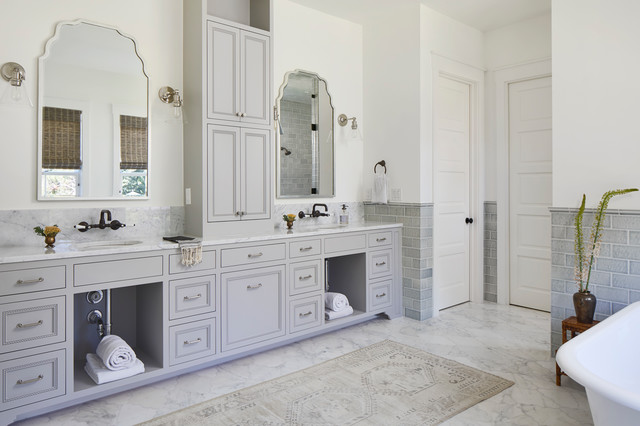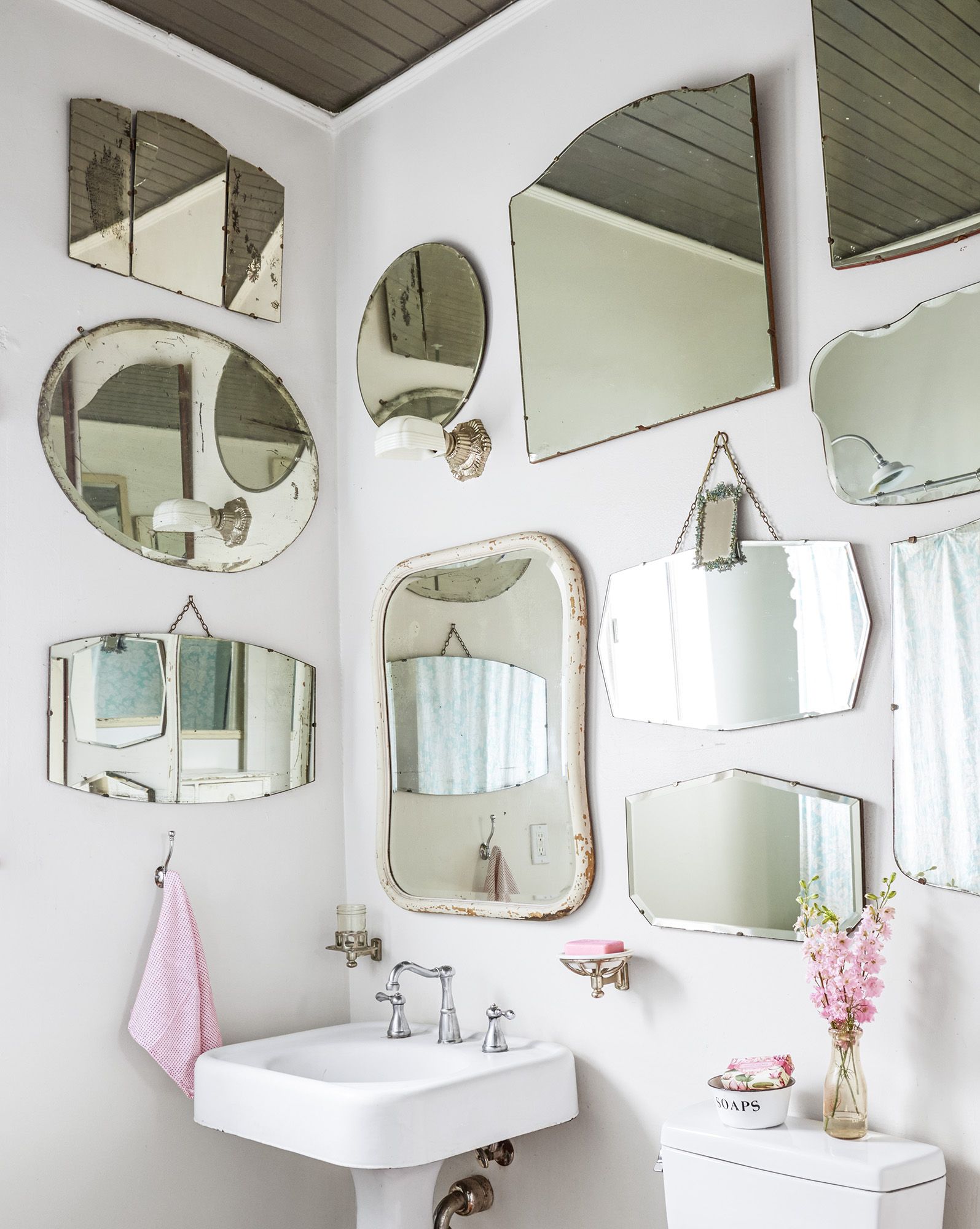Bathrooms are essential spaces in our homes where we start and end our days. From personal grooming to relaxation, the bathroom serves various functions. One crucial aspect of bathroom design often overlooked is the choice of mirrors. Many might wonder, “Can you use any mirror in the bathroom?” Let’s delve into this question and explore the factors to consider when selecting a suitable mirror for your bathroom.
Understanding Bathroom Mirrors

The Importance of Choosing the Right Mirror
The mirror in your bathroom serves as more than just a reflective surface; it’s a fundamental element that contributes to the functionality and aesthetics of the space.
Functional Aspect:
- Grooming: The primary purpose of a bathroom mirror is to aid in personal grooming activities such as shaving, applying makeup, styling hair, and performing skincare routines.
- Reflection of Light: Mirrors also play a crucial role in distributing light within the bathroom, especially in areas with limited natural light. They help enhance brightness and create an illusion of space by reflecting both natural and artificial light sources.
Aesthetic Aspect:
- Visual Impact: The size, shape, and style of the mirror can significantly impact the overall visual appeal of the bathroom. A well-chosen mirror can serve as a focal point or complement other design elements in the space.
- Illusion of Space: In smaller bathrooms, strategically placed mirrors can make the room appear larger and more open by reflecting light and creating depth.
- Harmonizing with Décor: The mirror should harmonize with the overall design theme and color scheme of the bathroom, whether it’s modern, traditional, minimalist, or eclectic.
Challenges in the Bathroom Environment

Bathroom mirrors face unique challenges due to the specific conditions of the environment, which differ significantly from other areas of the home.
High Moisture Levels:
- Exposure to Water: Bathrooms are inherently humid environments with frequent exposure to water from showers, baths, and sink usage. This constant moisture can cause regular mirrors to deteriorate over time, leading to issues like rust, corrosion, and mold growth.
- Condensation: Additionally, condensation can form on the mirror surface after hot showers, affecting visibility and potentially damaging the reflective coating.
Fluctuating Temperatures:
- Temperature Variations: Bathrooms experience temperature fluctuations, especially during hot showers or cold weather, which can cause regular mirrors to expand and contract, leading to warping or distortion.
- Impact on Mirror Quality: These temperature changes can compromise the structural integrity and reflective quality of the mirror, affecting its performance and longevity.
Implications for Mirror Selection
Given the unique challenges posed by the bathroom environment, it’s essential to choose a mirror specifically designed to withstand these conditions.
- Moisture Resistance: Opt for mirrors with moisture-resistant properties or materials that can withstand prolonged exposure to high humidity levels without rusting or deteriorating.
- Durability: Prioritize mirrors made from durable materials such as tempered glass, which undergoes a strengthening process to enhance resistance to breakage and impact.
- Safety: Select mirrors with safety features such as shatterproof glass or rounded edges to minimize the risk of accidents, especially in households with children or elderly individuals.
- Maintenance: Choose mirrors that are easy to clean and maintain, with features like anti-fog coatings or materials that resist water spots and smudges.
Can Any Mirror Be Used in a Bathroom?

Potential Issues with Using Regular Mirrors
1. Moisture Exposure:
Bathrooms are high-moisture environments due to activities like showering and bathing. Regular mirrors are not designed to withstand prolonged exposure to moisture, which can lead to issues such as:
- Rust and Corrosion: The metal components of traditional mirrors can rust when exposed to moisture over time, compromising their structural integrity and aesthetic appeal.
- Deterioration of Reflective Coating: Moisture can also cause the reflective coating on the back of the mirror to deteriorate, resulting in black spots or streaks that impair visibility.
2. Temperature Fluctuations:
Bathrooms experience fluctuations in temperature, especially during hot showers or cold weather. These temperature changes can impact the integrity of regular mirrors, leading to:
- Warpage: The expansion and contraction of mirror materials in response to temperature variations can cause warping or distortion, affecting the mirror’s reflective quality.
- Potential Breakage: Extreme temperature fluctuations may weaken the glass of regular mirrors, increasing the risk of breakage or shattering.
Considerations for Bathroom Mirrors
1. Moisture Resistance:
When choosing a mirror for your bathroom, opt for models specifically designed to withstand moisture exposure. Look for mirrors with:
- Moisture-Resistant Materials: Select mirrors made from materials that are resistant to rust, corrosion, and deterioration in humid environments.
- Anti-Fog Coatings: Consider mirrors with anti-fog coatings that prevent condensation from forming on the surface, ensuring clear visibility even after hot showers.
2. Durability and Safety:
Prioritize mirrors that offer durability and safety features to withstand the rigors of the bathroom environment. Look for:
- Tempered Glass: Tempered glass mirrors undergo a strengthening process that makes them more durable and resistant to breakage, enhancing safety.
- Shatterproof Design: Choose mirrors with shatterproof glass or protective backing to minimize the risk of accidents and injuries, especially in households with children or elderly individuals.
Types of Mirrors Suitable for Bathrooms

Several types of mirrors are specifically designed to address the challenges posed by bathroom environments:
- Copper-Free Mirrors or Moisture Resistant Frames: These mirrors are formulated to resist corrosion and deterioration caused by moisture, making them ideal for humid bathrooms.
- Tempered Glass Mirrors: Tempered glass undergoes a strengthening process, making it more durable and resistant to shattering, an essential feature for safety in bathrooms.
- Bathroom Vanity Mirrors: Vanity mirrors are tailored to fit seamlessly with the vanity unit, providing both functionality and aesthetic appeal.
- Illuminated Bathroom Mirrors: These mirrors feature integrated LED lighting, offering enhanced visibility and ambiance, particularly useful for tasks like makeup application.
- Medicine Cabinet Mirrors: Combining mirror functionality with storage space, medicine cabinet mirrors are a practical solution for maximizing space in smaller bathrooms.
- Makeup Mirrors: These smaller mirrors are designed for close-up grooming tasks and can be wall-mounted or freestanding to accommodate different preferences.
Conclusion
While it may be tempting to use any mirror in your bathroom, it’s essential to prioritize functionality and durability in this high-moisture environment. By selecting a mirror specifically designed for bathrooms, you can ensure longevity, safety, and optimal performance. Consider the unique challenges of the bathroom space and explore specialized options that offer moisture resistance, durability, and additional features to enhance your daily grooming routine. With the right mirror choice, you can elevate the functionality and aesthetic appeal of your bathroom while enjoying a reflection that stands the test of time.
